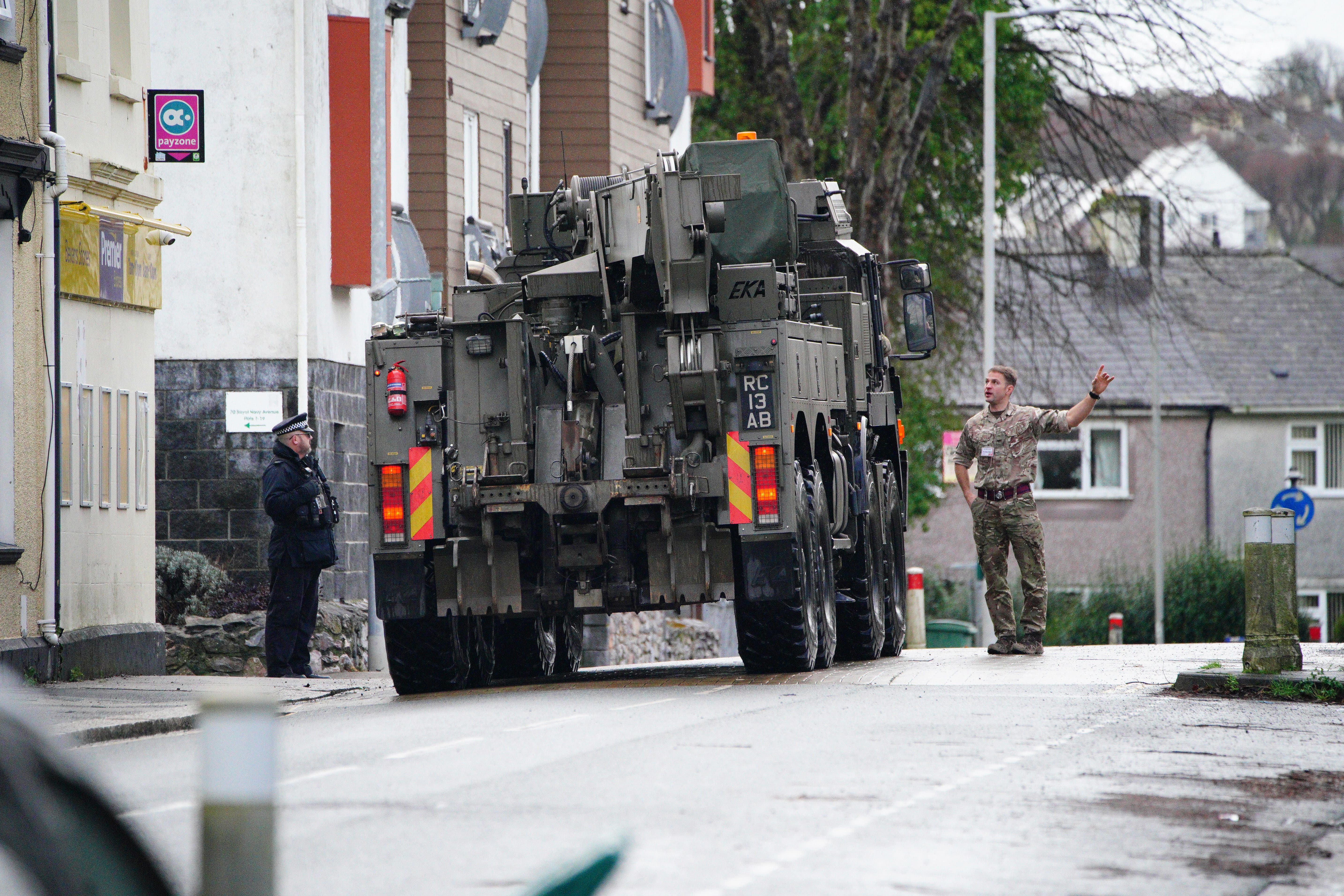Unexploded Second World War bomb from Plymouth garden to be detonated at sea
Plymouth City Council said residents living within 300 metres of the route the bomb will travel need to leave their homes.

A suspected Second World War explosive device will be removed from a garden in Plymouth and taken by military convoy to be disposed of at sea.
Devon and Cornwall Police were called on Tuesday morning to St Michael Avenue in the Keyham area of the city after the object was discovered.
Residents were evacuated and a 300-metre cordon was put in place around the site, affecting 1,219 properties and an estimated 3,250 people.
On Friday, Plymouth City Council announced that the bomb would be taken by military convoy to the Torpoint Ferry slipway to be disposed of at sea.
People living within 300 metres of the route the bomb will travel were told they must leave their homes by 2pm on Friday for their own safety.
In a statement, the council said: “Following more information about the device and after considering all options, including a controlled detonation on site, partners have agreed that the safest and least impactful option is to remove the device from St Michael Avenue and travel to the Torpoint Ferry slipway – for the bomb to be disposed of at sea.
“Highly trained bomb disposal experts will carefully remove the device from the property and it will be transported by road in a military convoy, west along Parkside and Royal Navy Avenue, joining at the junction on Saltash Road to continue south joining Albert Road, turning right along Park Avenue and heading down Ferry Road to the Torpoint Ferry terminal.
“However, in order for this to happen, we need support from residents in the area along the route.
“Anyone who lives within 300 metres of the route will need to leave their homes today for about three hours.”
The council added that an assessment found that if the bomb was detonated in the garden, there would be too high a risk of significant damage, including the destruction of a number of houses.
Risks still remain with moving the device but these are considered to be much lower following further work, it said.
Those affected by the cordon should be able to return home by 5pm on Friday, with the military advice clear that they must leave for their own safety.
The main trainline will be closed as it travels through the cordon, while ferries will be suspended and buses will be diverted.
Schools and nurseries are to close to allow the operation to take place, while all businesses within the cordon have been told to evacuate.
The council added: “Once the operation is complete, the Police will begin to reopen the roads. Everyone must avoid the area during this period.
“We are very grateful for the patience of residents at this difficult time and all agencies are doing everything they can to minimise any ongoing disruption. We will aim to keep residents informed throughout the operation.”
Bookmark popover
Removed from bookmarks